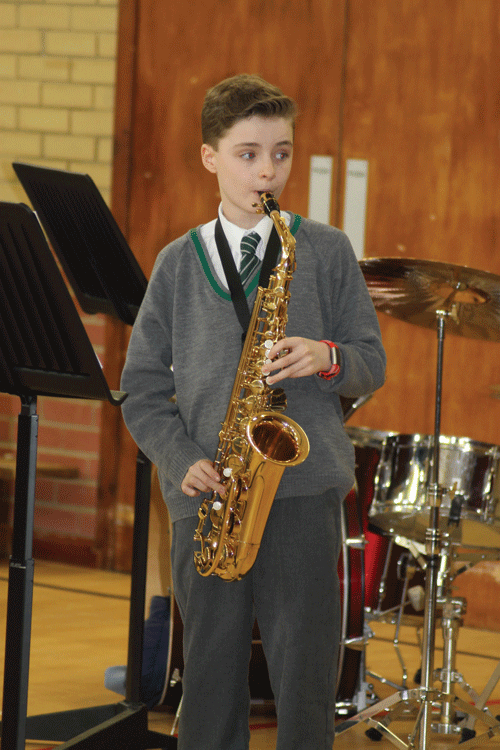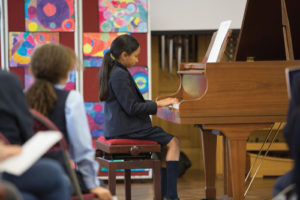by Springfit Gymnastics and Trampoline Clubs
There are many benefits to participating in trampolining and gymnastics. They are great sports for all ages and fitness levels, and for people who enjoy both individual sports and teamwork. They provide a chance to set your own goals and work at your own pace.
Here are just a few of the reasons to get involved with gymnastics and trampolining in 2019.
Health and fitness
The moves taught are designed on a progressive scale to allow further development to make them harder and more intricate. With each level achieved through suitably planned training, participants are able to improve their joint health, maintain muscular development and improve cardiovascular fitness, making you feel healthier and more alert. Unlike running, trampolining has comparatively low joint impact for an intense exercise routine. It has been proven that trampolining improves your metabolic rate, helping you stay fit and healthy!
Mental health
Both gymnastics and trampolining are extremely beneficial for improving concentration and mental focus. These activities are great for a child’s cognitive development – encouraging them to use their imagination and gain a better understanding of their body and capabilities. The physical activities you perform will also make you feel happier, more positive, and even more self-confident. Endorphins, the positive mood-enhancing natural chemicals released by all exercise are triggered, and in trampolining especially, the sheer fun factor of jumping up and down will make you smile, make you laugh and make you feel really happy. It’s hard to feel blue when you’re bouncing!
Co-ordination and motor skills
Flexibility is a big factor in gymnastics and trampolining. In order to achieve the various positions needed to perform moves, teaching suppleness is of vital importance. Increasing flexibility can also be an effective aid to the reduction
of injury.
Co-ordination can also be improved. David Beckham, NASA trainee astronauts and many other professionals use gymnastics and trampolining to and develop the skills that allow you to undertake a number of items requiring concentration at the same time: bouncing, balancing, maintaining the body’s position, and anticipating the next action in order to learn to perform skilful activities.
Education
Gymnastics provides a unique and valuable social education and experience. It provides an ideal opportunity to learn about teamwork; sportsmanship; fair play and dedication. The time required to master the fundamental skills requires a great amount of patience, dedication, perseverance and planning. Regular gymnastics, therefore, helps people learn to work hard for objectives that can take years to achieve.
One of the most interesting elements of the activities is that the gymnast can experience a variety of effects in practice rather than just in theory. For example, physicists discuss the principle of conservation of angular momentum; the gymnast experiences it.
Conclusion
If you’re still not convinced, I have saved possibly the most persuasive benefit until last. It’s really good fun! Learning how to jump, tumble, flip, swing, and come as close to self-powered flight as is possible is anything but boring. There is always another step to learn; it is possible to learn something new every single class you attend. A regular workout releases endorphins (the happiness chemicals that improve mood) and trampolining could even be an answer to those who want to keep up their fitness but have struggled with joint difficulties.
There are so many diverse and wide-reaching disciplines involved within the sport that make it accessible to all ages and abilities, with benefits at every stage. So what are you waiting for? Join in!
For supporting studies relating to the benefits evidenced here please see www.springfit.org.
Springfit host many classes in the local area which provide the benefits listed above.
If you are keen to get your kids involved in something new, or perhaps try a new sport yourself then get in touch!
We have classes for all ages and abilities!


 scussing the news might not be a part of everyday conversations. The increased use of technology might mean there are fewer opportunities for having a chat and as a lot of the news can be quite negative, many parents may want to shield and protect their children from it.
scussing the news might not be a part of everyday conversations. The increased use of technology might mean there are fewer opportunities for having a chat and as a lot of the news can be quite negative, many parents may want to shield and protect their children from it.

 This journey of broad discovery essentially starts at primary and indeed pre-primary level and provides all children with the opportunity to seek out and explore areas of interest and to develop talent which provide many with a lifelong love of learning. Over the years I have spoken to many parents whose main requirement, when considering the options for their children, is to ensure their children are happy. Happiness and thus mental health are of key importance in a world of increased pressure and expectations. Children supported and nurtured and indeed loved within their school will automatically have a head start and hopefully will develop a hunger for knowledge. Of course the breadth of study and the balance of the curriculum is also key and provides the option for all to explore their individual burgeoning interests. All children develop academically at a different pace. On many occasions I have had to reassure anxious parents that their child is not a failure because they are struggling with their spellings or their fractions. These are just moments in time in the life of a young person and should not be the basis of perceived success nor failure.
This journey of broad discovery essentially starts at primary and indeed pre-primary level and provides all children with the opportunity to seek out and explore areas of interest and to develop talent which provide many with a lifelong love of learning. Over the years I have spoken to many parents whose main requirement, when considering the options for their children, is to ensure their children are happy. Happiness and thus mental health are of key importance in a world of increased pressure and expectations. Children supported and nurtured and indeed loved within their school will automatically have a head start and hopefully will develop a hunger for knowledge. Of course the breadth of study and the balance of the curriculum is also key and provides the option for all to explore their individual burgeoning interests. All children develop academically at a different pace. On many occasions I have had to reassure anxious parents that their child is not a failure because they are struggling with their spellings or their fractions. These are just moments in time in the life of a young person and should not be the basis of perceived success nor failure. Confidence is key together with a large dose of resilience. So your child isn’t going to win a Spelling Bee! But watch them play their musical instrument with pride and courage or hear them sing in front of an admiring audience. Look at their artwork and wonder at their developing sensitivity. Stand back in awe at their prowess on the hockey field and feel proud at their selfless teamwork and support for others. Marvel at their enthusiasm for their castle project in history or their ability to recite verse in French or Spanish. And admire them on the stage in the school production as a child you barely recognise as the one who you take home every day from school!
Confidence is key together with a large dose of resilience. So your child isn’t going to win a Spelling Bee! But watch them play their musical instrument with pride and courage or hear them sing in front of an admiring audience. Look at their artwork and wonder at their developing sensitivity. Stand back in awe at their prowess on the hockey field and feel proud at their selfless teamwork and support for others. Marvel at their enthusiasm for their castle project in history or their ability to recite verse in French or Spanish. And admire them on the stage in the school production as a child you barely recognise as the one who you take home every day from school!









